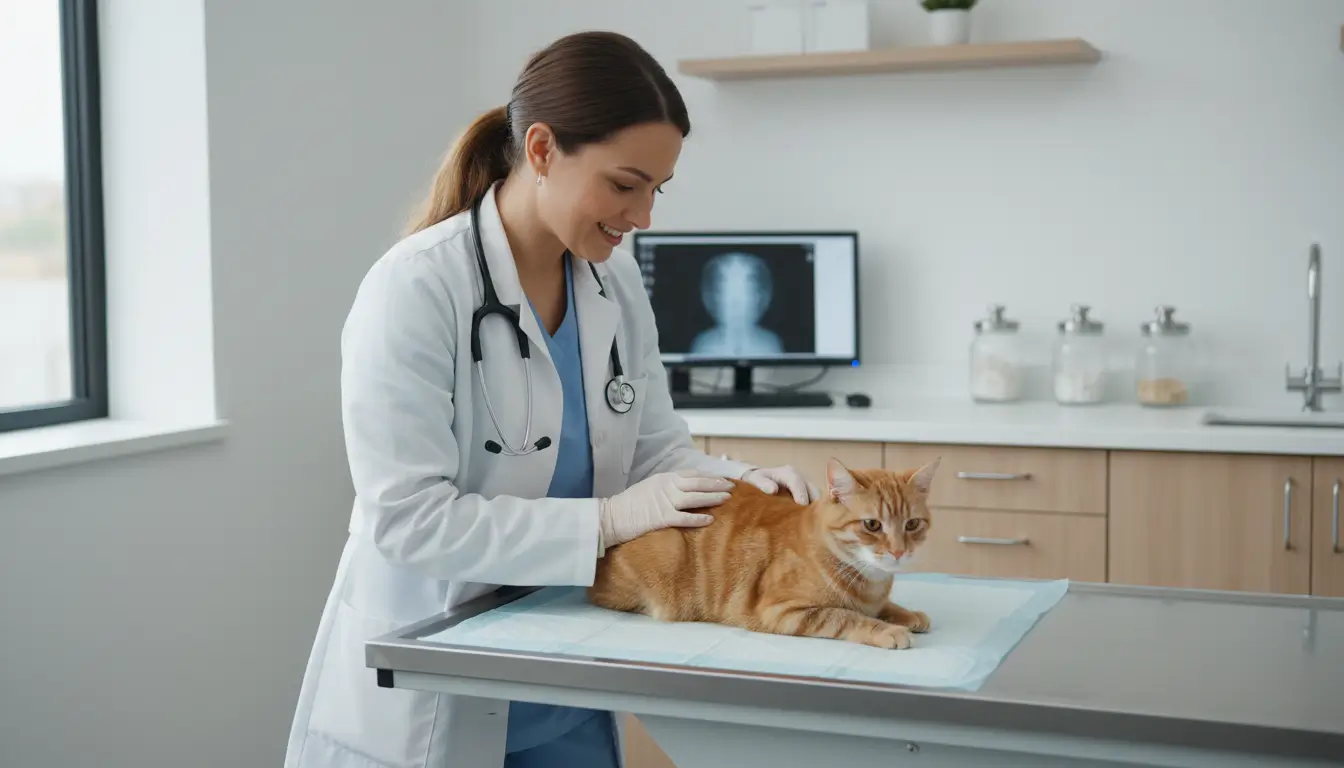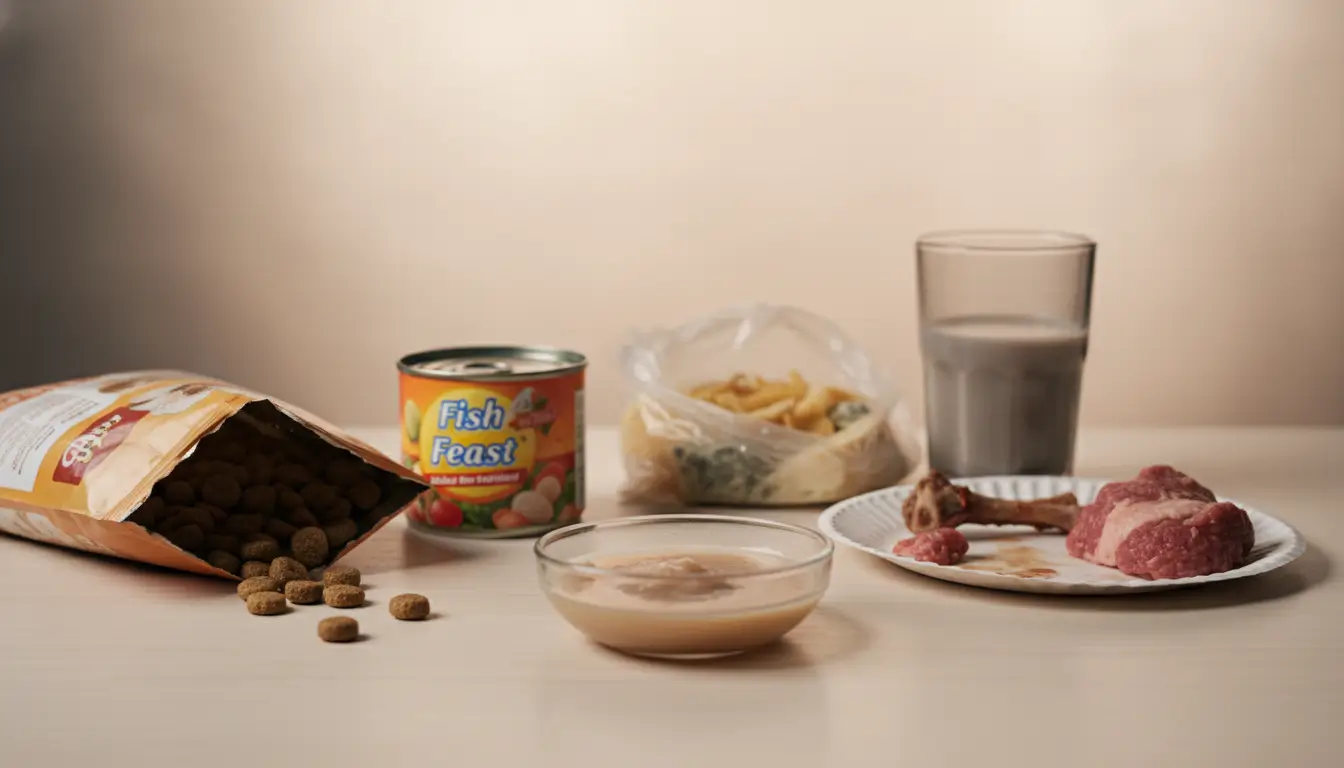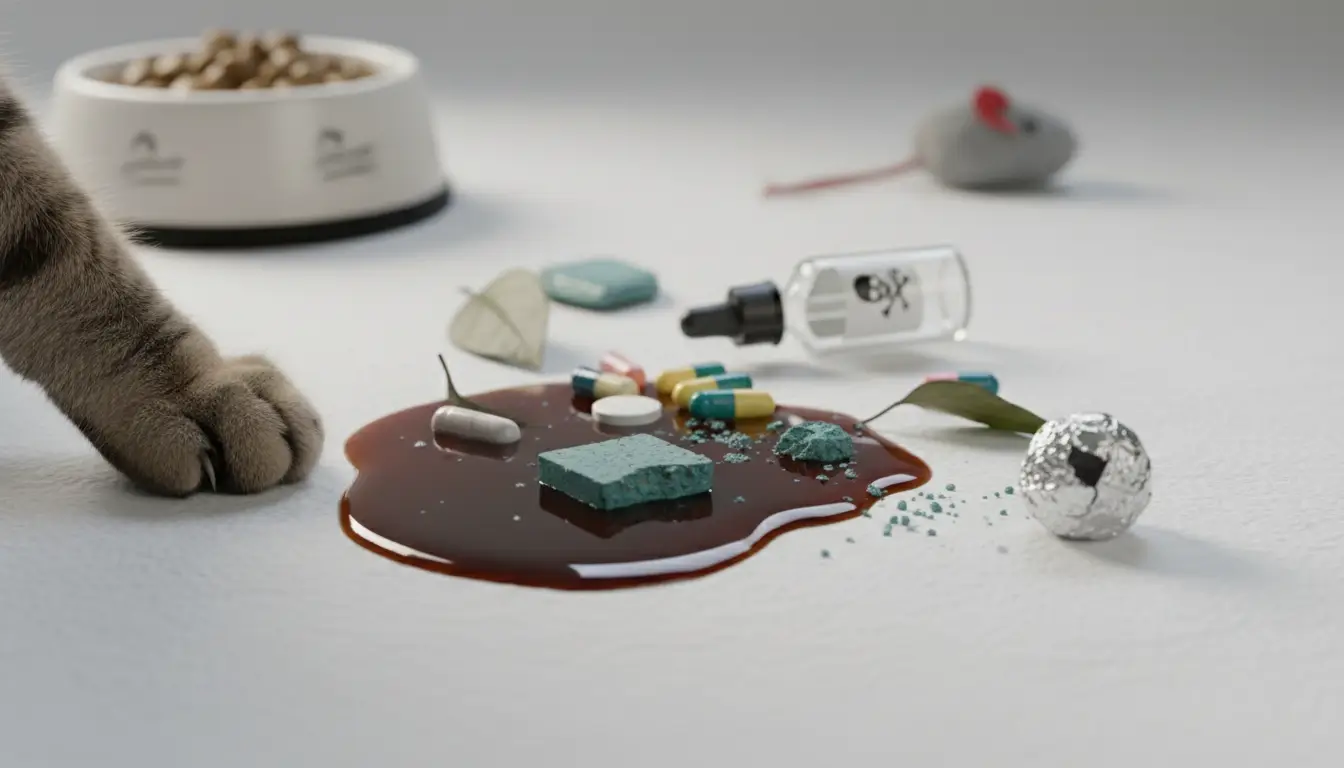Why Does My Cat Have Diarrhoea? Common Causes and When to Worry

Understanding Cat Diarrhoea: An Overview
Cat diarrhoea is a common digestive issue that most pet owners will encounter at some point. While occasional loose stools might resolve quickly, persistent diarrhoea can indicate underlying health problems that require veterinary attention. Understanding the potential causes helps you make informed decisions about your cat’s health.
Dietary Causes: The Most Common Culprits
Sudden Food Changes
Cats have sensitive digestive systems, and abrupt dietary changes are a leading cause of diarrhoea. Their gut microbiome needs time to adjust to new proteins, fats, or formulations. Always transition to new foods gradually over 7-10 days, mixing increasing amounts of the new food with decreasing amounts of the old food.

Food Intolerances and Allergies
Some cats develop sensitivities to specific ingredients, most commonly beef, dairy, or certain grains. Food intolerances typically cause intermittent diarrhoea, while true allergies may also present with skin issues like itching or excessive grooming. Your vet may recommend an elimination diet trial to identify triggers.
Dietary Indiscretion
Cats are naturally curious and may consume inappropriate items—spoiled food from the bin, human food, houseplants, or foreign objects. These dietary indiscretions can irritate the intestinal lining and cause acute diarrhoea. Keep rubbish bins secured and toxic plants out of reach.
Parasitic Infections
Intestinal Worms
Roundworms, tapeworms, and hookworms are common intestinal parasites that cause diarrhoea, especially in kittens and cats who hunt. Regular deworming and flea control are essential preventatives. Outdoor cats who hunt rodents are at higher risk.
Protozoal Infections
Giardia and coccidia are microscopic parasites that cause persistent diarrhoea, often with mucus or blood. These infections are particularly common in multi-cat households, catteries, or cats who drink from contaminated water sources. Both require specific medications from your vet.
Infectious Diseases
Bacterial Infections
Salmonella, Campylobacter, and E. coli can cause acute diarrhoea, often with additional symptoms like vomiting or fever. These bacteria are typically contracted from contaminated food, especially raw diets, or from infected prey. Proper food handling and avoiding raw diets reduces this risk.
Viral Infections
While less common in vaccinated cats, viral infections like feline parvovirus (panleukopenia) can cause severe diarrhoea. Kittens and unvaccinated cats are most vulnerable. Keeping vaccinations up to date is crucial protection.
Non-Infectious Medical Conditions
Inflammatory Bowel Disease (IBD)
IBD is a chronic condition where the intestinal wall becomes inflamed, impairing nutrient absorption and causing persistent diarrhoea, weight loss, and sometimes vomiting. Diagnosis requires intestinal biopsies, and treatment typically involves dietary modification and immunosuppressive medications.
Hyperthyroidism
Common in older cats (typically over 10 years), hyperthyroidism accelerates metabolism, causing diarrhoea, increased appetite, weight loss, and restlessness. A simple blood test can diagnose this treatable condition.
Kidney Disease
Chronic kidney disease affects older cats and can cause diarrhoea alongside increased thirst, frequent urination, and weight loss. Regular blood and urine tests help catch this condition early when dietary management can slow progression.
Pancreatitis
Inflammation of the pancreas causes diarrhoea, vomiting, abdominal pain, and loss of appetite. Pancreatitis can be triggered by high-fat foods, certain medications, or occur spontaneously. This condition requires veterinary treatment and dietary management.
Stress and Anxiety
Cats are sensitive to environmental changes and stress. Moving house, introducing new pets, changes in routine, or even rearranging furniture can trigger stress-induced diarrhoea. Provide stable routines, safe hiding spaces, and consider pheromone diffusers during stressful periods. Stress-related diarrhoea typically resolves once the cat adjusts.
Toxins and Poisons
Toxic Substances
Many household items are toxic to cats and cause diarrhoea:

- Plants: Lilies (highly toxic), daffodils, azaleas
- Household chemicals: Cleaning products, antifreeze
- Medications: Human painkillers (especially paracetamol), antidepressants
- Foods: Onions, garlic, chocolate, grapes
If you suspect toxin ingestion, contact your vet immediately—some toxins are life-threatening.
Medication Side Effects
Certain medications, particularly antibiotics, can disrupt gut bacteria balance, causing diarrhoea. Always give medication with food unless instructed otherwise, and inform your vet if diarrhoea develops. Never give human medications to cats without veterinary guidance.
When to See Your Vet: Red Flags
Contact your vet immediately if your cat shows:
- Blood in the stool (bright red or black/tarry)
- Severe or watery diarrhoea lasting more than 24 hours
- Vomiting alongside diarrhoea
- Lethargy or weakness
- Loss of appetite (especially if not eating for 24+ hours)
- Dehydration signs: dry gums, sunken eyes, skin tenting
- Fever (warm ears/paws, shivering)
- Weight loss
- Abdominal pain or bloating
- Kittens, senior cats, or cats with chronic conditions experiencing diarrhoea
Supporting Your Cat at Home
For mild, short-term diarrhoea in otherwise healthy adult cats:
- Provide fresh water and monitor hydration
- Offer a bland diet (boiled chicken or white fish with rice) for 24-48 hours
- Ensure a quiet, stress-free environment
- Continue regular feeding schedule once stools firm up
Avoid over-the-counter anti-diarrhoeal medications unless specifically prescribed by your vet.
Prevention Strategies
Reduce future episodes by:
- Feeding a consistent, high-quality diet
- Making dietary changes gradually
- Maintaining regular deworming and flea control
- Keeping vaccinations current
- Minimising stress and environmental changes
- Preventing access to toxins and inappropriate foods
- Scheduling regular veterinary check-ups, especially for senior cats
Diagnostic Approach
Your vet may recommend:
- Faecal examination: Checks for parasites and bacteria
- Blood tests: Assesses overall health, organ function, thyroid levels
- Abdominal ultrasound: Evaluates intestinal thickness and organ health
- Dietary trials: Tests for food sensitivities
- Biopsy: Definitive diagnosis for IBD or intestinal cancer
Conclusion
Cat diarrhoea has numerous potential causes, from simple dietary indiscretions to serious medical conditions. While mild, short-term diarrhoea may resolve with supportive care at home, persistent or severe diarrhoea requires veterinary evaluation. Understanding these causes helps you recognise when professional care is needed and implement preventive measures to keep your cat healthy.
Remember, early intervention often leads to better outcomes, so don’t hesitate to contact your vet if you’re concerned about your cat’s digestive health.




